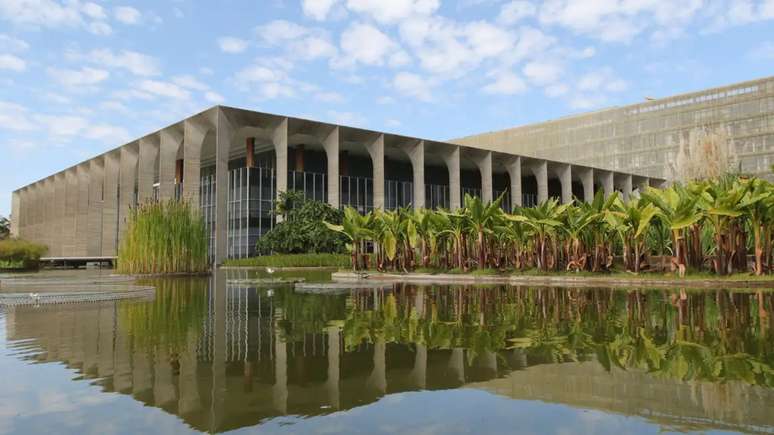According to Itamaraty, such actions are unacceptable and violate international humanitarian law, as well as UN Security Council resolutions.
The Brazilian Ministry of Foreign Affairs expressed its strong condemnation of the recent attacks carried out by Israel against the United Nations peacekeeping mission “UNIFIL” in Lebanon. These events have raised international concerns and criticism regarding the violations of international law that such actions represent.
Israeli action
On Monday, the Brazilian government issued an official statement condemning what was described as the invasion of the UNIFIL base by Israeli armed forces. The memorandum stated that Israeli tanks destroyed the main gate and remained in the area for 45 minutes, during which shots were fired nearby. This was the third such attack reported in the same week, with five members of the UN peacekeeping mission injured due to the hostilities.
Brazil, which played an important role in UNIFIL’s maritime force between 2011 and 2021, expressed its condemnation of the ongoing violations. According to Itamaraty, such actions are unacceptable and violate international humanitarian law, as well as UN Security Council resolutions. The letter reiterates the importance of UNIFIL in the process of bringing peace to southern Lebanon, in reference to its role since its establishment by a Security Council resolution in 1978.
Israeli logic and strategy
On the other hand, Israel, through its Prime Minister Benjamin NetanyahuHe defended the necessity of removing UNIFIL from the region. Netanyahu said that the presence of the peacekeeping mission could endanger peacekeeping forces and regional security. He stressed in a statement published on a social media network that the best way to protect UNIFIL forces is their temporary withdrawal from conflict areas.
This request came in the wake of a series of bombings that, according to human rights groups, led to the displacement of more than 1.2 million people in Lebanon. While Israel claims that the operations aim to neutralize the Hezbollah group, which is active in southern Lebanon and attacks Israeli sites, the humanitarian consequences have drawn global criticism.
Humanitarian challenges and regional security
The current scenario in Lebanon and the escalation of conflicts have exacerbated the humanitarian challenges in the region. Humanitarian organizations highlight the growing civilian displacement crisis, as well as the impact of hostilities on local infrastructure. Tel Aviv, in turn, faces pressure to protect its residents from future attacks by the Lebanese resistance.
Concern over the possible closure of Haifa port highlights the economic and geopolitical risks of the conflict. The situation in Lebanon and the surrounding region remains a critical international security issue, requiring continued attention from the international community.



![[VÍDEO] Elton John’s final show in the UK has the crowd moving](https://www.lodivalleynews.com/wp-content/uploads/2023/06/Elton-John-1-690x600.jpg)


More Stories
A South African YouTuber is bitten by a green mamba and dies after spending a month in a coma
A reptile expert dies after a snake bite
Maduro recalls his ambassador to Brazil in a move to disavow him and expand the crisis